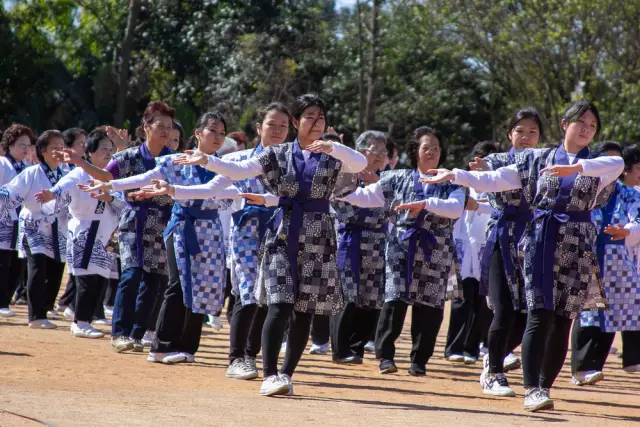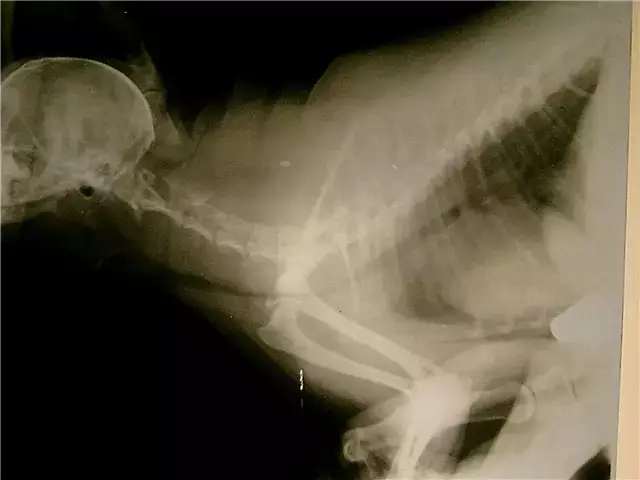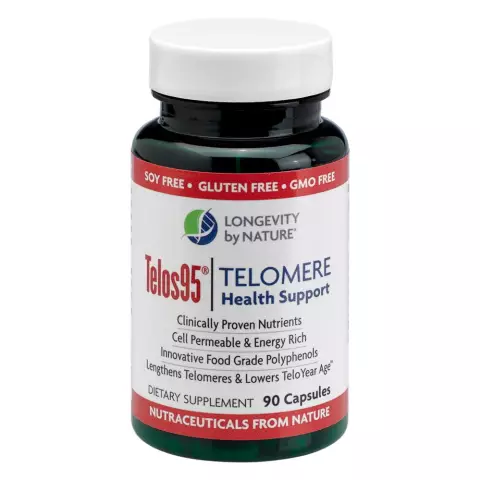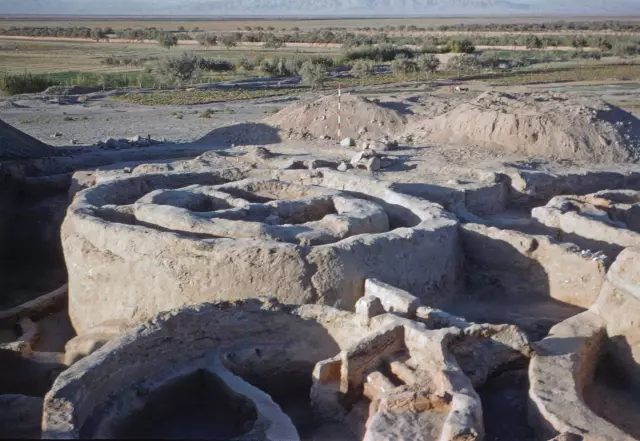- Author Rachel Wainwright wainwright@abchealthonline.com.
- Public 2023-12-15 07:39.
- Last modified 2025-11-02 20:14.
Okinawan longevity diet
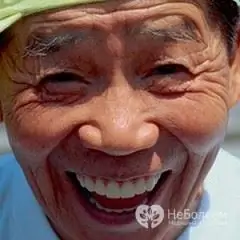
Few have not heard of the famous long-livers of the island of Okinawa - a striking place where an eighty-year-old is considered mature, and ninety-year-olds begin to think about approaching old age. It's not just the number of years, but also the quality of life: long-livers of Okinawa do not suffer from "diseases of old age", do not have cholesterol deposits in the vessels, do not know what hypertension, heart attacks and strokes are, and are not susceptible to cancer. They are smiling, light, mobile, and lead a very active lifestyle. Scientists from all over the world have been studying the phenomenon of the island of Okinawa for more than a dozen years, coming to the conclusion that a whole set of reasons leads to this effect, which can be described as a healthy lifestyle combined with positive thinking and an overall benevolent atmosphere, as well as a leisurely traditional way of life. life. Nutrition is key. The inhabitants of the island greet each other like this: "Are you eating well?"
Nutritional principles of Okinawan centenarians
In Okinawa, it has long been believed that eating is necessary only in a good mood, always in the company of loved ones. Food is treated with great respect here, without offending the gifts of nature with trivial snacks, and although what our nutritionists call fractional meals, that is, eating in small, frequent portions, is practiced on the island, each such meal is a complete meal, where dishes are served according to all the rules, on beautiful dishes, without haste.
Okinawa Island is one of the islands of the Ryushu archipelago, the climate here is hot and humid, food spoils quickly, and therefore traditionally eaten dishes are either freshly prepared or fermented, like the popular miso seasoning here (not to be confused with the traditional Japanese miso soup) and local alcoholic drink. Yes, yes, they drink alcohol, and quite strong, about 30 degrees. The point is that the joy of the inhabitants of the island is by no means alien, and you will be surprised more than once by this option of healthy eating, which breaks many stereotypes.
In general, answering questions about their traditional food, the inhabitants of the island call their cuisine the word Champura, which means - a hodgepodge. Their diet is very varied, and has nothing to do with separate meals. All traditional dishes are a mixture of dissimilar ingredients.
Despite the fact that food is consumed often, in general, food is low in calories, and is considered insufficient for a European. Some researchers are even inclined to believe that if you stick to the Okinawa diet for a long time, you can get exhaustion with all the ensuing troubles, but what about the Okinawans who adhere to this type of diet in their 80-100 years is much longer than Europeans in their 60-70 ? True, there are really no fat people on the island, all residents are thin, but this fact can be attributed to the advantages rather than disadvantages of their traditional diet.
So, the basic principles can be summarized as follows: often, in small portions, varied, but low-calorie food, slowly and with pleasure.
Diet
If everything is more or less clear with the principles of nutrition, and they largely coincide with the basic principles of healthy nutrition for Europeans, then the diet of the inhabitants of the island of Okinawa cannot but surprise the adherents of a healthy lifestyle. Despite the fact that it is based on a plant-based diet, Okinawans happily eat meat, with pork being the main source of it - in the language of Okinawa, meat and pork are one and the same. Many dishes are prepared from pigs, eating them whole, with tails, ears and piglets. One of the favorite dishes is the rich soup of pork legs, from which most of the fat is removed, the most beneficial in it is the abundance of sticky collagen and casein, which our supporters of a healthy diet regularly anathematize.
In addition to meat, the island loves fish, and unlike the rest of Japan, they never eat it raw. And although meat and fish are very revered among the islanders, they are not eaten too often, the basis of food is still plant.
The main source of carbohydrates for Okinawans is by no means rice, since the conditions on the island are not very suitable for growing it, but sweet potatoes, or sweet potatoes. The person who first brought this valuable vegetable to the island is remembered and revered by the locals to this day, although this happened back in 1606. Sweet potatoes, like many other products, are traditionally prepared by frying in a little oil over low heat.
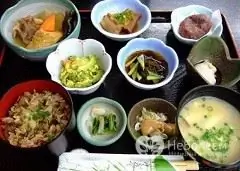
Traditional Japanese soba noodles are very popular on the island of Okinawa, but here they are made not from rice or buckwheat flour, as in the rest of Japan, but from wheat (it is just unknown whether it is hard or soft). The noodles are poured over with broth and served, what would you think? With pork, onions and eggs.
Another traditional product is, of course, tofu - the famous soy cheese. The tofu produced on the island differs from the traditional one in its greater density. Tofu is eaten here very often, in fact, it is included in any meal. It is believed that this is the secret of the absence of troubles in the women of the island associated with the onset of menopause, since soy contains hormone-like substances, and used so often, it plays the role of hormone replacement therapy.
Algae, a valuable source of minerals, are also actively used here for food in a variety of ways.
Condiments, spices, alcohol
All of these are present in the diet of Okinawans. They season food with salt and spices, mainly pepper and miso paste, which we already wrote about above. Miso is made from legumes that are fermented along with grains (rice, wheat) and tofu waste. The importance of this product, which is a storehouse of B vitamins, is evidenced by a local saying: "Salt and miso are the masters of the house."
The local alcoholic drink is called avamori. This is a variant of sake made from special varieties of rice and black yeast. It is difficult to say whether it has a dietary value, but as one of the traditional products of the famous cuisine of the island of Okinawa, it is very popular not only among locals.
But what about dessert?
Sweets are not traditional for the inhabitants of the island, as well as for the rest of the Japanese. Local sweets, in the understanding of Europeans, are not sweet, rather slightly sweetened, and they are rarely eaten. These "desserts" include sweets based on bean paste and sweet potatoes. But, as we can see, the absence of such pleasures plays an extremely positive role in health.
But in Okinawa they drink a lot of tea, both black and green, and they also love flower tea - jasmine. Each type of tea is supposed to have a separate teapot, Okinawans believe that if, say, green tea is brewed in the same teapot as black tea, it becomes poisonous.
Okinawans regard food as a cure for disease, and support the assertion that if you don't eat food as medicine, sooner or later you will eat medicine as food.
Found a mistake in the text? Select it and press Ctrl + Enter.

